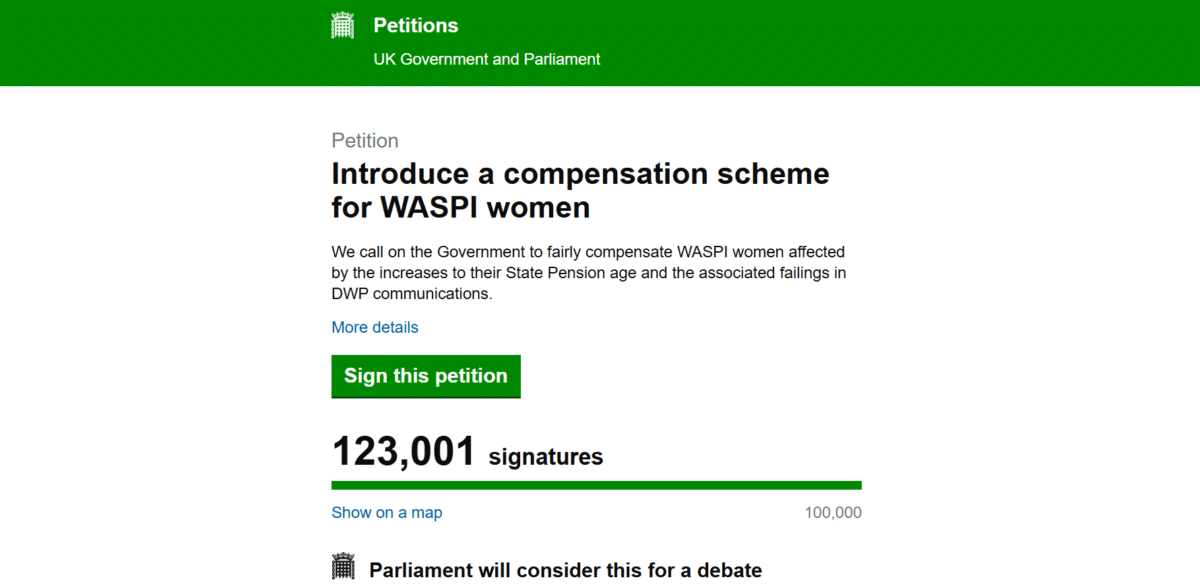Tens of thousands of people have signed an online petition calling to implement a compensation scheme for WASPI women to be in place by March 21, 2025. The petition is part of an ongoing campaign led by women affected by changes to the State Pension age, which has left many in financial uncertainty.
Thousands of Signatures Support the WASPI Women Cause
The petition has garnered widespread support, with tens of thousands of signatures urging the government to act. The women behind the WASPI campaign argue that the changes to the State Pension age have been made without adequate notice, leaving many in an untenable financial situation. In a statement, campaigners emphasised that the changes were implemented without proper consultation, leaving a generation of women unprepared.
The petition reads, “Tens of thousands of people have signed an online petition calling for a State Pension age compensation scheme to be in place by March 21, 2025.” This growing support highlights the widespread frustration surrounding the issue.
The following are the major demands of the Women Against State Pension Inequality (WASPI) movement:
| Demand | Details | Expected Outcome |
|---|---|---|
| Financial compensation | A call for a compensation plan to address the financial losses suffered by WASPI women. | To alleviate the financial difficulties caused by the unanticipated pension age changes. |
| Clear implementation date | A request for the scheme to be implemented by March 21, 2025. | A definitive timeline for the resolution of the issue. |
| Transparent communication | A demand for clear and accessible communication regarding rights and actions to take. | Ensure women understand their options and how to proceed with claims. |
The Urgent Call for Action
Campaigners have set a clear deadline for the government’s response, demanding that the compensation scheme be established by March 21, 2025. This date represents a key moment for those affected, and the women who signed the petition are urging the government to take action sooner rather than later.
The petition specifically calls for compensation for the financial difficulties many women have faced due to the delayed changes to the State Pension age. As stated by petition organisers, the deadline is not arbitrary; it is seen as “a realistic date for a resolution” to the problems these women are facing.

The Case for Compensation
The women impacted by the changes to the State Pension age are predominantly those born in the 1950s. The increase in the pension age, which has been gradually phased in, was announced with little warning. Many women were left with little time to adjust their financial plans for retirement, leading to significant hardship.
One of the key grievances is the lack of proper notice and the absence of transitional measures to ease the burden on those most affected. As campaigners put it, these women “have been hit hard financially by the lack of notification and the failure to implement necessary adjustments.” This lack of preparation has left many struggling to make ends meet, prompting the call for financial redress.
The Growing Support for Change
The petition’s growing number of signatures amplifies the pressure on the government to resolve the issue. Many women argue that the changes to the State Pension age, while designed to equalise the pension system for men and women, have disproportionately affected them. Without adequate support or compensation, these women feel abandoned by the system they had contributed to over the years.
The petition highlights the urgent need for a solution that takes into account the challenges faced by these women. As the organisers state, “We want to see real action taken by the government to compensate those who have been adversely affected by these pension age changes.”









